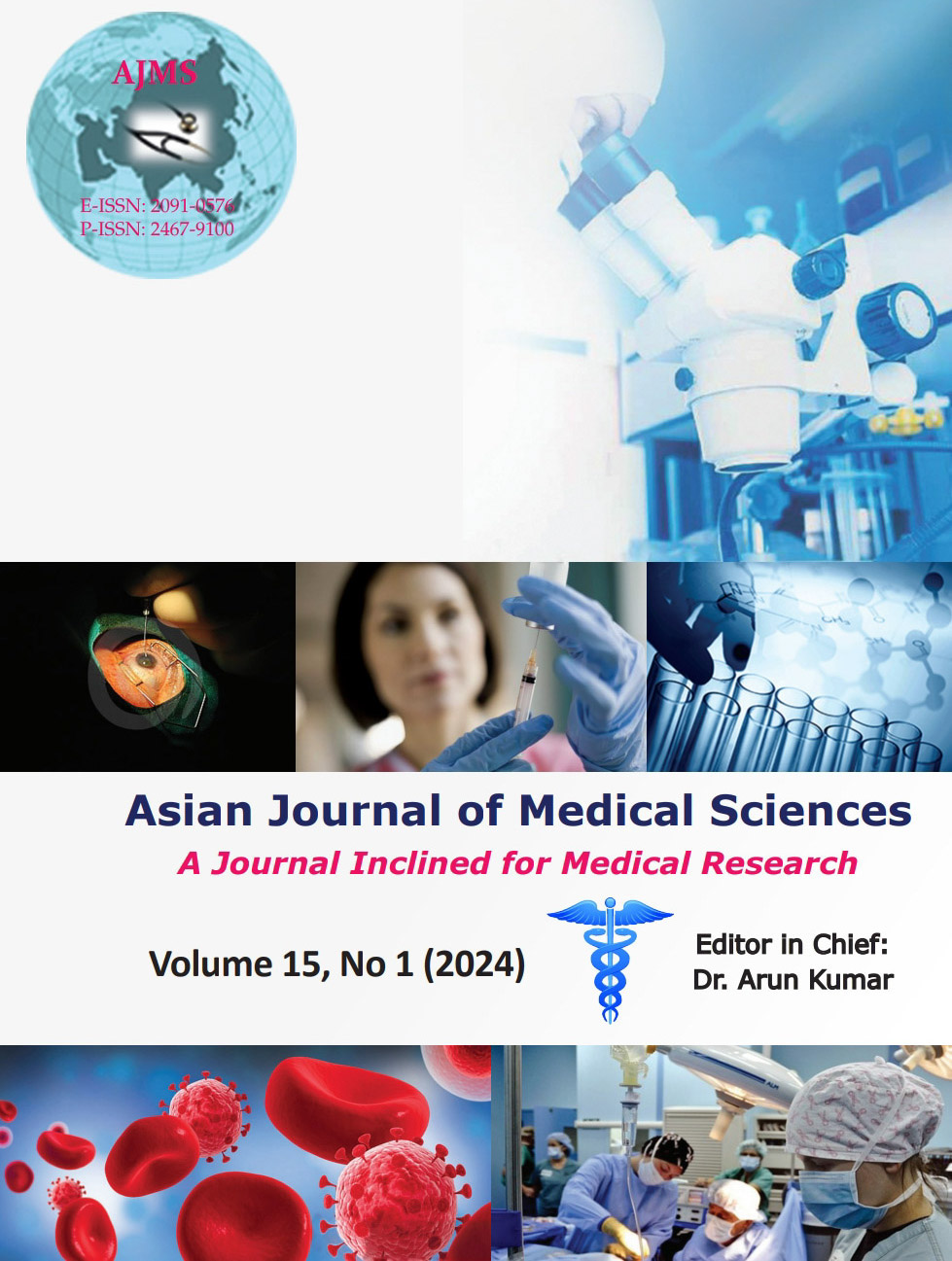A retrospective analysis of post-treatment complications in patients with carcinoma vulva undergoing surgery as a primary treatment modality
Keywords:
Vulva; Human papillomavirus; Carcinoma; Surgery; Complications; Post-treatment; p16Abstract
Background: Vulvar carcinoma accounts for 5% of all malignant neoplasms in the female genital tract, with a higher incidence in developing countries and increased risk associated with human papillomavirus (HPV) infection.
Aims and Objectives: The study aimed to retrospectively evaluate treatment complications in patients with carcinoma vulva who had undergone primary surgery alone or as part of multimodality therapy. It also aimed to evaluate HPV marker positivity in this group of patients and its relation to disease profile and prognosis.
Materials and Methods: This is a retrospective study wherein data from the Regional Cancer Centre, Coimbatore, from 2017 to 2023, about 42 patients who underwent primary surgery for carcinoma vulva were analyzed. Patient information, including age, symptoms, imaging, biopsy, staging, and treatment options, were retrieved for analysis.
Results: Regarding post-operative complications, ten patients developed seroma (23%), 9 had limb edema (21%), five patients had wound dehiscence (11%), and nine patients had post-radiotherapy/chemotherapy complications (21%). The mortality rate among patients in the study was 9% (4 patients). All four died because of nodal relapse. Six patients (14%) had disease recurrence in this study group, among whom 5 were HPV-negative (83%). Two patients had a recurrence in the primary site, and four had a nodal recurrence. HPV marker p16 was positive in 18 patients (43%) overall, and they were found to belong to the younger age group and had good treatment outcomes.
Conclusion: Primary surgery for carcinoma vulva patients in our study is associated with limited but manageable complications amenable to rectification. HPV-associated carcinoma vulva is increasing in prevalence (43% in younger age group) with a positive prognosis.
Downloads
Downloads
Published
How to Cite
Issue
Section
License
Copyright (c) 2023 Asian Journal of Medical Sciences

This work is licensed under a Creative Commons Attribution-NonCommercial 4.0 International License.
Authors who publish with this journal agree to the following terms:
- The journal holds copyright and publishes the work under a Creative Commons CC-BY-NC license that permits use, distribution and reprduction in any medium, provided the original work is properly cited and is not used for commercial purposes. The journal should be recognised as the original publisher of this work.
- Authors are able to enter into separate, additional contractual arrangements for the non-exclusive distribution of the journal's published version of the work (e.g., post it to an institutional repository or publish it in a book), with an acknowledgement of its initial publication in this journal.
- Authors are permitted and encouraged to post their work online (e.g., in institutional repositories or on their website) prior to and during the submission process, as it can lead to productive exchanges, as well as earlier and greater citation of published work (See The Effect of Open Access).




